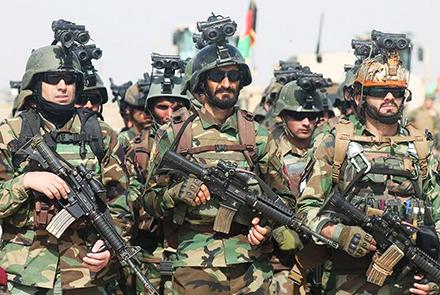The Ministry of Defense (MoD) declared Taliban’s announcement of its spring offensive ‘a war propaganda’, saying the Afghan National Security and Defense Forces (ANDSF) are fully ready to deal devastating blow to the militants and foil their so-called offensive.
“Tonight, they (Taliban) coordinated their attacks in 20 provinces. But they have sustained major setbacks on all fronts and have suffered heavy casualties,” said Major Gen. Afzal Aman, Commander of Kabul Garrison.
Meanwhile, acting US Secretary of State John Sullivan said the Taliban’s announcement of their spring offensive underscored the group’s “responsibility for the insecurity that destroys the lives of thousands of Afghans each year.”
“There is no need for a new ‘fighting season’,” Sullivan said.
“Still, the Taliban announced another campaign of senseless violence targeting the democratically elected and internationally recognized Afghan government and their fellow Afghans.”
The militants said their campaign was a response to a more aggressive US military strategy adopted last year, which aims to force the militants into peace talks.
“Its primary target will be the American invaders and their intelligence agents. Their internal supporters will be dealt with as a secondary target,” the Taliban said.
A former military commander said he believes that Taliban must be brought under “full pressure” militarily in order to join the peace process.
“The Americans believe that the Taliban will not attend the negotiation table through invitation, request and advise, therefore they must be put under pressure, Taliban must be disappointed from a military victory, they must suffer casualties to attend the talks table,” said former military commentator Saleh Mohammad Registani.
“I think their calculation is right, because of that, this year will be the year of war, not the year of talks and negotiation,” he added.
This comes as Mohammad Hanif Atmar, the National Security Advisor for President Ashraf Ghani, in a meeting with his Pakistani counterpart Nasser Janjua in the Russian resort town of Sochi on Thursday stressed the need for implementation of the seven key principles for action plan agreed by the two countries on April 6 during Pakistan Prime Minister Shahid Khaqan Abbasi’s visit to Kabul.
Atmar said the only option to build trust between the two governments is to take practical steps towards implementing commitments made by the two countries.
“This is a reality that large amount of Afghan drug is sent to foreign countries, but it is also a reality that chemicals, weapons and foreign fighters are being sent to Afghanistan by elements in the region,” Atmar said.
There are reports meanwhile that Janjua in turn has assured Pakistan’s commitment to abide by the provisions of the seven key principles for action plan.
Ghani and Abbasi agreed on the following principles:
1. Pakistan to support the Afghan-led and Afghan-owned peace and reconciliation,
2. The two countries to undertake effective action against fugitives and irreconcilable elements posing security threats to either of the two countries,
3. Both countries commit to deny use of their respective territories by any country, network, group or individuals for anti-state activities against either country,
4. To put in place a joint supervision, coordination and confirmation mechanism through Liaison Officers (LOs) for the realization of the agreed actions.
5. The two countries commit to avoid territorial and aerial violations of each other’s territory,
6. The two countries to avoid public blame games and instead use APAPPS cooperation mechanisms to respond to mutual issues of contention and concerns, and
7. Establish Working Groups and necessary cooperation mechanisms as per APAPPS for full implementation of the APAPPS and the above, mutually reinforcing principles.


